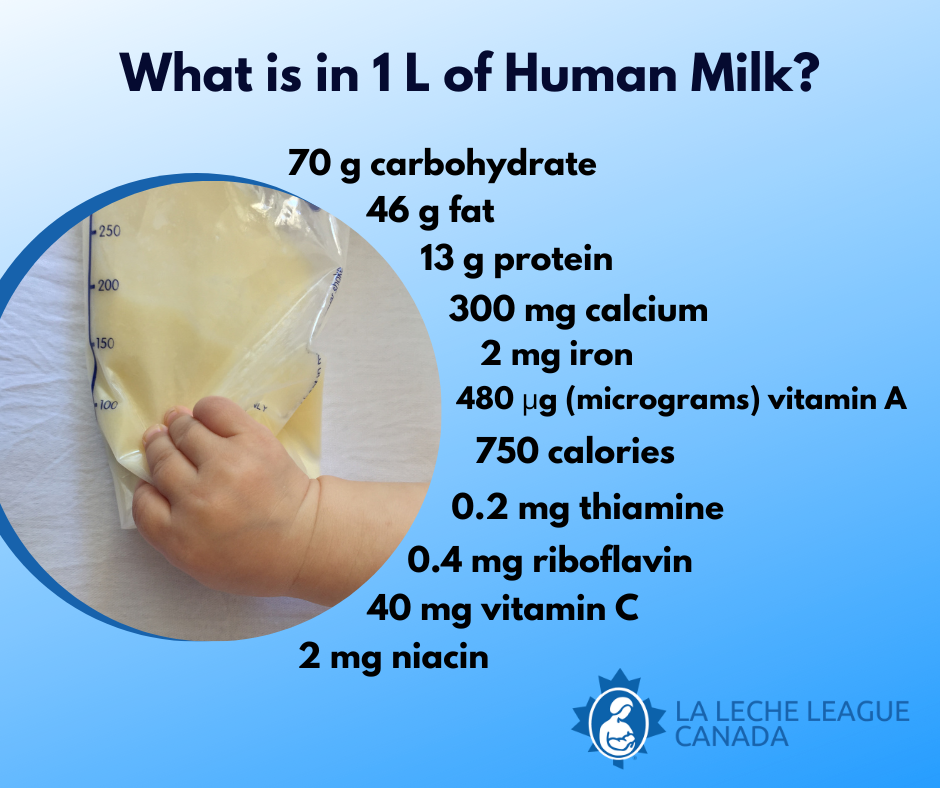
Human milk volume varies widely, but for fully breastfed babies between 5 weeks and 6 months of age, it is often 650 ml to 1000 ml or more per day. The nutrients present in your milk come from the reserves in your body and from the food you eat.
Human milk has a remarkably consistent composition between nursing parents. The fat content of human milk varies somewhat between breastfeeding mothers and is more likely affected by the types of fats a mother eats. The carbohydrate, protein, calcium and iron contents do not change much even if the mother is short of these in her diet. A mother whose diet is deficient in thiamine and vitamins A and C, however, produces less of these in her milk. In general, if a lactating woman has very poor nutrition the most likely effect is that her milk supply will be reduced. The quality of the milk is much less affected. Very few women in Canada would have a level of nutrition so poor that it would significantly affect the quality or quantity of their milk.
It’s important to know that the main ingredients of human milk - fats, proteins and carbohydrates - provide your baby with both nutrition and protection. Your milk not only has cells to give your baby extra immunity, but it is essential for the normal development of your baby’s own immune system.
This nutritional data of human milk comes from the Food and Agriculture Organization of the United Nations: Human Nutrition in the Developing World.
Please consider supporting LLLC.
Updated 2024
